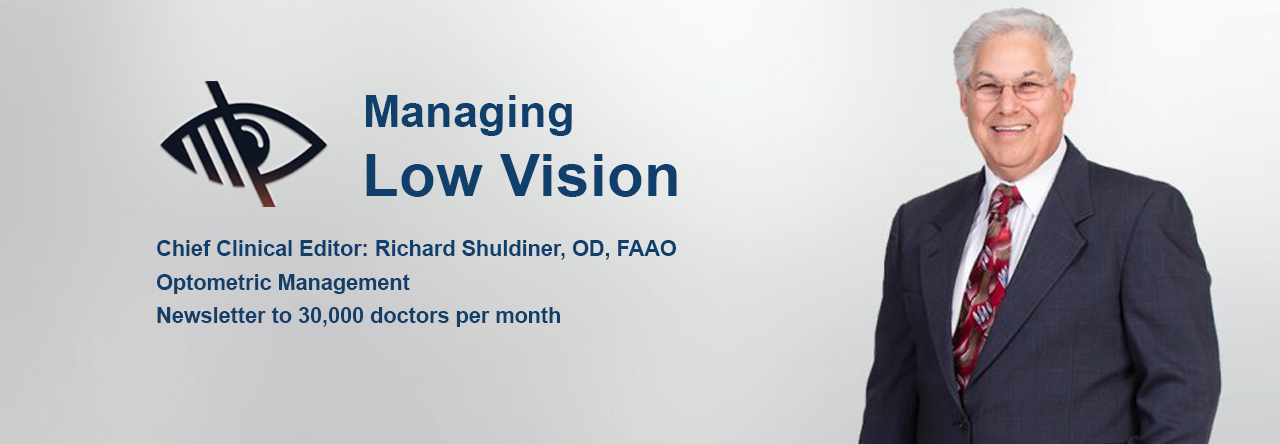By Richard J. Shuldiner, OD, FAAO, FIALVS Chief Clinical Editor
Earlier this month I received this email from “Nicole”:
Hi, my name is “Nicole”. I have optic nerve hypoplasia and uncorrectable vision loss. Fully corrected, I can see around 20/60 and mostly wear contact lenses. I am uncertain about correcting my vision to max capacity because I feel my eyes just readjust to the same vision loss and I never really improve and my eyes just get lazier with a higher need for power.
I am interested in learning about proper nutrition to support my eye health, eye exercises and knowledge about whether I should keep increasing power given to my eyes or not. Would I be considered as a patient here or could you recommend someone with knowledge of these things to help me? I appreciate any help you can give. Thank you.
I spoke to her a few days ago and she reported having seen many eye doctors over the years. She had been to general ophthalmologists, retinologists, neuro-ophthalmologists and optometrists. Her last optometric exam was about 6 months ago. She was prescribed a new Rx and reports that her corrected vision is about the same. Nicole’s best corrected vision has remained about the same from birth.
She has lived like this for 43 years, been to a multitude of eye doctors and has never had a low vision exam, has never been referred for low vision care and was never even told that low vision care existed. She found me on Google.
SHAME ON HER DOCTORS!
Low Vision care has been available since the 1950’s and referral for low vision rehabilitation is now the Standard of Care for vision loss patients.
While I have not seen her yet, I can draw some conclusions and make some suggestions and predictions. Her statement about her “eyes readjusting to the same vision loss” and “just get lazier with a higher need for power” leads me to believe that no one has educated her on what lenses do. I believe that no one has educated her on nutritionals and answered her questions about eye exercises with regard to her genetic condition. Lastly, she does not understand the difference between refractive correction and magnification with low vision glasses and devices.
I did have a telephone conversation with “Nicole” and she reported having 20/60 acuity. Her goals included reading small print with glasses and seeing signs and traffic lights better. I discussed what I thought low vision care could do for her. With 20/60 vision, she could renew her driver’s license, which she obtained by memorizing the DMV eye chart. With bioptic telescope lenses she should be able to read road and street signs and recognize traffic signals from a much greater distance. This will make her a safer driver. With a higher add, she would be reading small print.
In addition, she can be helped to read small print with glasses instead of the hand magnifier she is using now. At work, life will be easier and more efficient. At home, preparing food and cooking will be easier and more enjoyable. Low vision glasses and other magnification aids will greatly improve the quality of her life and make her more independent. A referral for low vision care was indicated decades ago for this young woman.
Low vision care is about the tasks people are having trouble with, not the visual acuity they have.
Referring a vision loss patient is easy.
To determine if low vision care is indicated, just ask these two questions:
- Does your vision problem affect your daily activities?
- Has your vision problem caused you to give up any activities?
If yes, simply say: “There are low vision doctors who can help. Google the word low vision and you’ll find help.”

